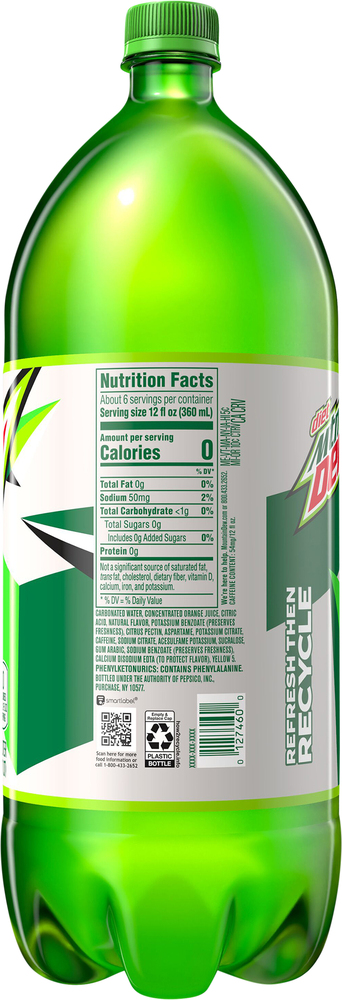Have you ever looked at a can of Diet Mountain Dew and wondered what’s really inside? If you’re someone who loves the refreshing zing of this citrus-flavored beverage but is also mindful about what you’re consuming, you’re in the right place. Let’s unravel the nutrition facts and find out if this drink truly aligns with your lifestyle goals.
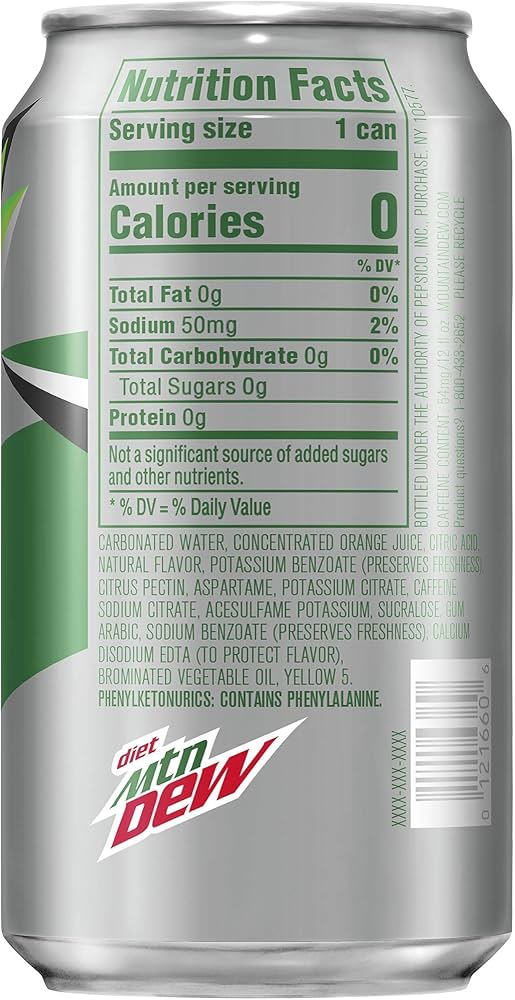
This image is property of Amazon.com.
Understanding Diet Mountain Dew
Diet Mountain Dew is a sugar-free soft drink that was first introduced in 1986. It’s acclaimed for having the same bold, citrus flavor as its regular counterpart while eliminating calories. However, what ingredients make it a popular choice among those looking to cut sugar and reduce calorie intake?
Ingredients Breakdown
To fully understand the nutritional profile of Diet Mountain Dew, let’s take a look at its key ingredients:
-
Carbonated Water: This is the primary ingredient, providing that bubbly texture you enjoy.
-
Artificial Sweeteners: The sweetness in Diet Mountain Dew comes from aspartame and/or acesulfame potassium. These zero-calorie sweeteners are designed to mimic the taste of sugar without any calories.
-
Citrus Flavoring: This is what gives Diet Mountain Dew its iconic taste. The flavoring can include natural and artificial sources.
-
Caffeine: A moderate amount of caffeine is included, which can provide that little perk you might be looking for.
-
Coloring Agents: The bright green color primarily comes from Yellow 5 (Tartrazine), which is a synthetic dye.
-
Phosphoric Acid: This adds acidity to the drink and also acts as a preservative.
-
Preservatives: These ensure a longer shelf life and keep the drink fresh.
Are there any ingredients that raise eyebrows? Perhaps the artificial sweeteners or the coloring agents might be points of concern for some.
Nutritional Information
Understanding the nutritional information is crucial in making an informed decision. Here’s a summary of the nutritional facts for a typical 12 fl oz (355 mL) can of Diet Mountain Dew:
| Nutrient | Amount per Serving |
|---|---|
| Calories | 0 |
| Total Fat | 0 g |
| Sodium | 50 mg |
| Total Carbohydrates | 0 g |
| Total Sugars | 0 g |
| Protein | 0 g |
| Caffeine | 54 mg |
In a world where calories and sugar are notorious buzzwords, the fact that Diet Mountain Dew contains none of either certainly makes it appealing. But is zero calories really a good thing?
The Caffeine Boost
Caffeine is a friendly companion for many, offering that much-needed energy boost. With 54 mg of caffeine per 12 oz serving, Diet Mountain Dew gives you similar caffeine content to a cup of brewed coffee but without the calories.
Benefits of Caffeine
- Increased Alertness: A small dose can significantly improve focus.
- Enhanced Physical Performance: It’s been shown to increase endurance in physical activities.
- Mood Elevation: Caffeine can provide an uplifting effect for some.
Considerations
However, keep in mind that moderation is key. Too much caffeine can lead to jitteriness or anxiousness, so keeping track of your intake is essential, especially if you enjoy other caffeinated beverages.
The Role of Artificial Sweeteners
Artificial sweeteners often spark debate. For many, they’re a suitable alternative to sugar, especially when you’re trying to manage weight or blood sugar levels. But are they really a healthy alternative?
Pros of Artificial Sweeteners
- Zero Calories: They offer sweetness without calories, making them attractive for weight management.
- Blood Sugar Friendly: They don’t spike your blood sugar, which makes them a go-to for those with diabetes.
Cons of Artificial Sweeteners
- Taste Preference: Not everyone enjoys the aftertaste that some sweeteners may impart.
- Potential Health Concerns: There’s ongoing debate about the long-term effects of regular consumption. Some studies suggest potential effects on metabolism and gut health.
It’s essential to evaluate how your body responds. Some may experience cravings for more sugar after consuming artificial sweeteners, while others adapt without issue.
Calories vs. Nutrition
While the zero-calorie claim sounds good, it’s important to remember that calories aren’t the only thing that counts in a beverage. Nutrition usually offers a broader perspective, helping you decide what’s best for your health.
Nutritional Void
With Diet Mountain Dew primarily offering nothing but the fizz and artificial sweetness, it lacks other nutritional elements like vitamins, minerals, or antioxidants. If you’re looking for hydration, it might not hold up against the benefits of water or herbal teas.
Finding Balance
Consider what role Diet Mountain Dew plays in your overall diet. If it’s an occasional treat amidst a balanced intake of fruits, vegetables, and whole foods, it can fit right in. However, if it’s your go-to drink throughout the day, it could be time to reconsider.
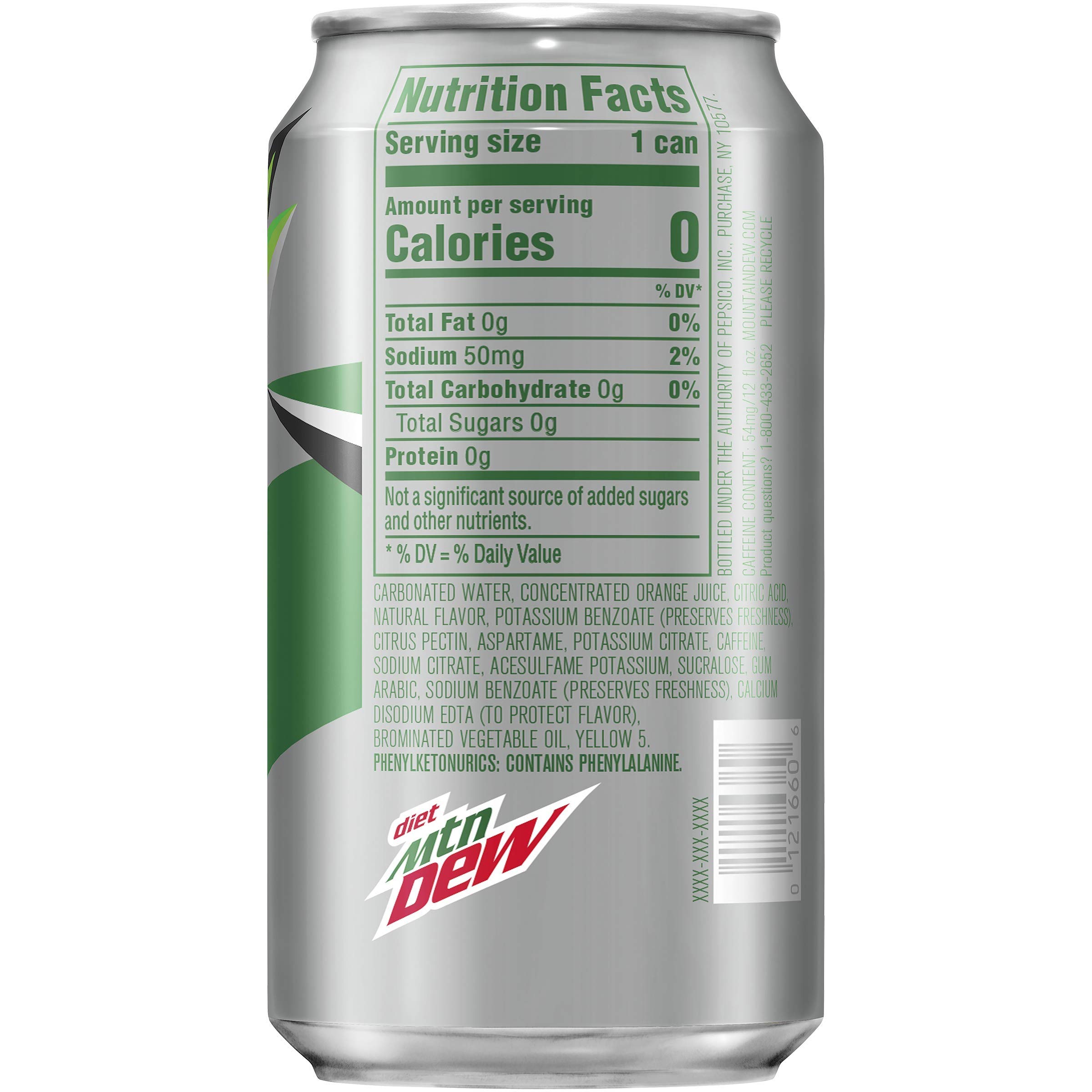
This image is property of Amazon.com.
Diet Mountain Dew and Hydration
Staying hydrated is key to your well-being. While Diet Mountain Dew can quench your thirst, it may not serve as the best choice for hydration.
Caffeinated Beverages and Hydration
Despite the caffeine content, you might wonder whether it impacts hydration levels. Research suggests that moderate caffeine consumption doesn’t significantly lead to dehydration.
Water is Still Best
That said, water remains the champion for hydration. Diet Mountain Dew can certainly be a refreshing alternative when you need a little pick-me-up, but it shouldn’t replace your primary source of hydration.
Comparing Diet Mountain Dew to Other Beverages
When considering your options, how does Diet Mountain Dew stack up against other drinks? This breakdown can help clarify:
| Beverage | Calories | Caffeine | Sugar | Artificial Sweeteners | Nutritional Value |
|---|---|---|---|---|---|
| Diet Mountain Dew | 0 | 54 mg | 0 g | Yes | None |
| Regular Mountain Dew | 170 | 54 mg | 46 g | No | None |
| Coke Zero | 0 | 34 mg | 0 g | Yes | None |
| Sparkling Water | 0 | 0 mg | 0 g | No | Varies (if flavored) |
| Unsweetened Tea | 0 | 30-50 mg | 0 g | No | Antioxidants |
In food and drink choices, variety is a crucial element. Each beverage has its unique profile and contributes differently to your diet.
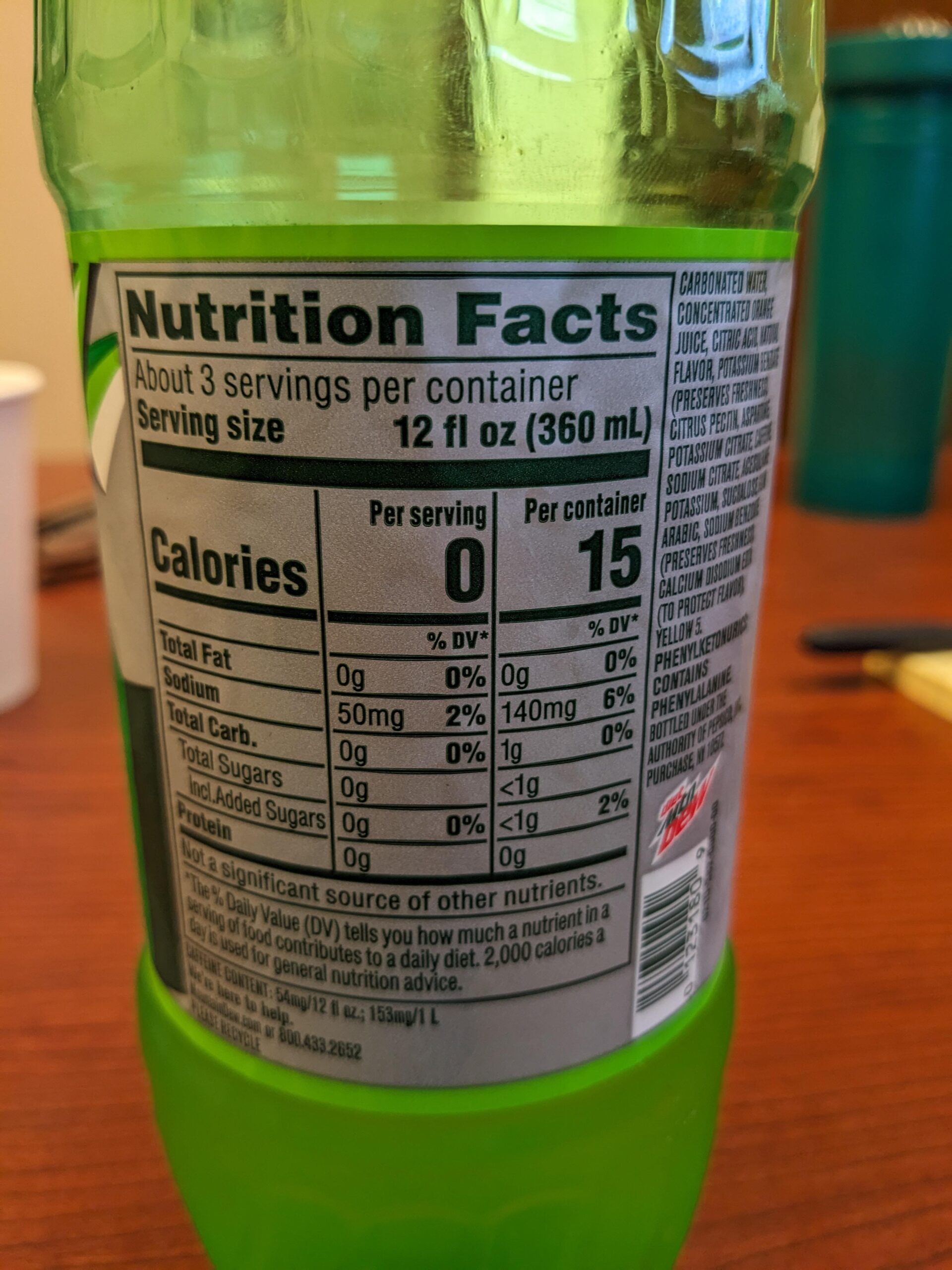
This image is property of i.redd.it.
Potential Health Concerns
As you enjoy your Diet Mountain Dew, it’s wise to consider any potential health concerns stemming from its ingredients, especially if you consume it regularly.
Obesity and Metabolic Issues
Some studies have suggested that artificial sweeteners may be linked to an increase in cravings, leading to overeating. However, findings are mixed, and further research is necessary.
Dental Health
Carbonated beverages can be acidic and could contribute to enamel erosion. Good oral hygiene is essential, especially if you indulge regularly.
Balancing Your Consumption
Everyone has their preferences, but moderation is truly the magic word. Knowing how to integrate Diet Mountain Dew into your diet can help you enjoy it without guilt.
Occasional Treat
Think of it as an occasional treat rather than a daily staple. This way, you’ll still get to enjoy the flavor without overdoing the artificial ingredients.
Pairing Beverages Wisely
If you enjoy a casual lunch or dinner, consider pairing a Diet Mountain Dew with wholesome foods. That could help you feel more balanced in your choices.
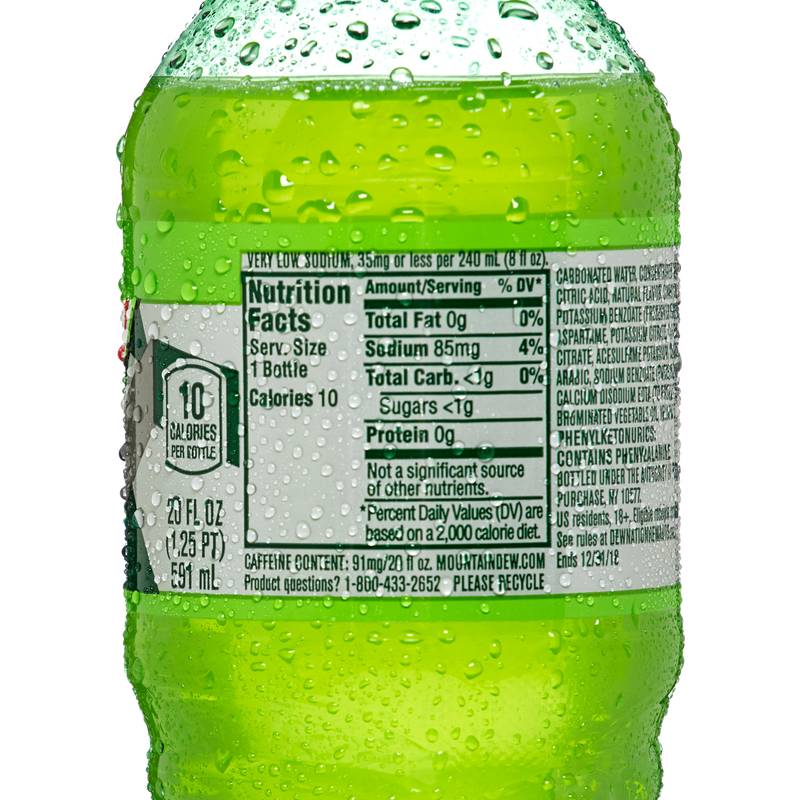
This image is property of arizona.bevmo.com.
Conclusion – Is Diet Mountain Dew Right for You?
Ultimately, whether Diet Mountain Dew is the right choice for you depends on your individual lifestyle and health goals. It offers a zero-calorie, sugar-free beverage choice but lacks the nutritional elements you might find in other drink options.
Tune In to Your Body
Listen to what your body is telling you. If you enjoy the fizz, the taste, and the energy boost without any adverse effects, then it’s all about finding that balance that works specifically for you.
Futures Full of Flavor
At the end of the day, life should be flavorful, and enjoying your favorite beverages is a part of that fun. Just remember to keep the bigger picture in mind, and you’ll be set for many refreshing moments.
